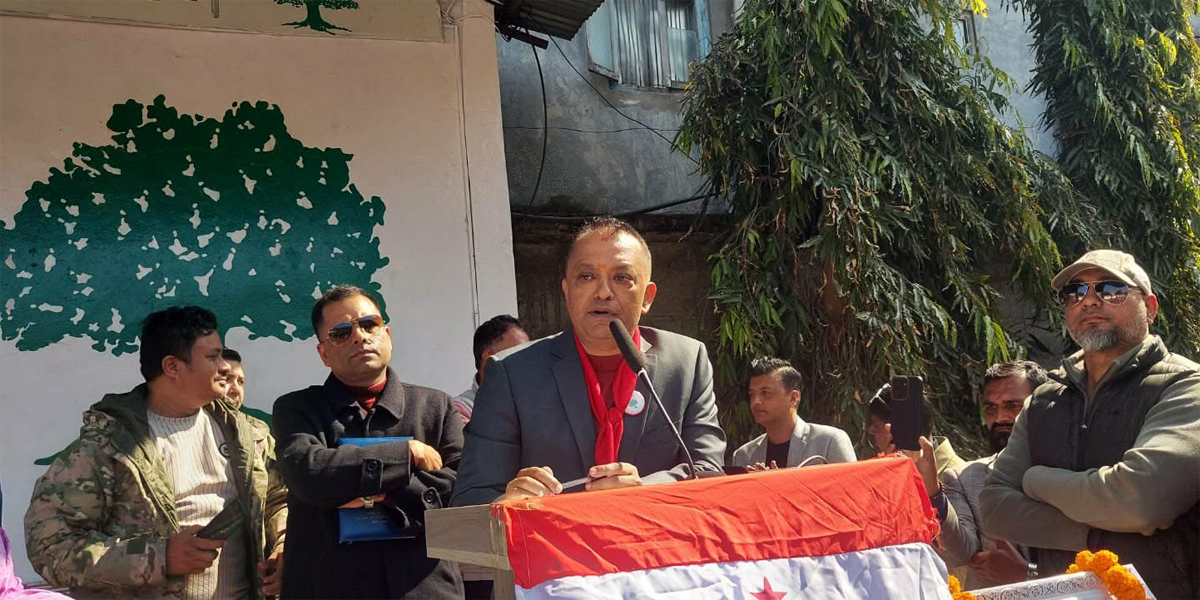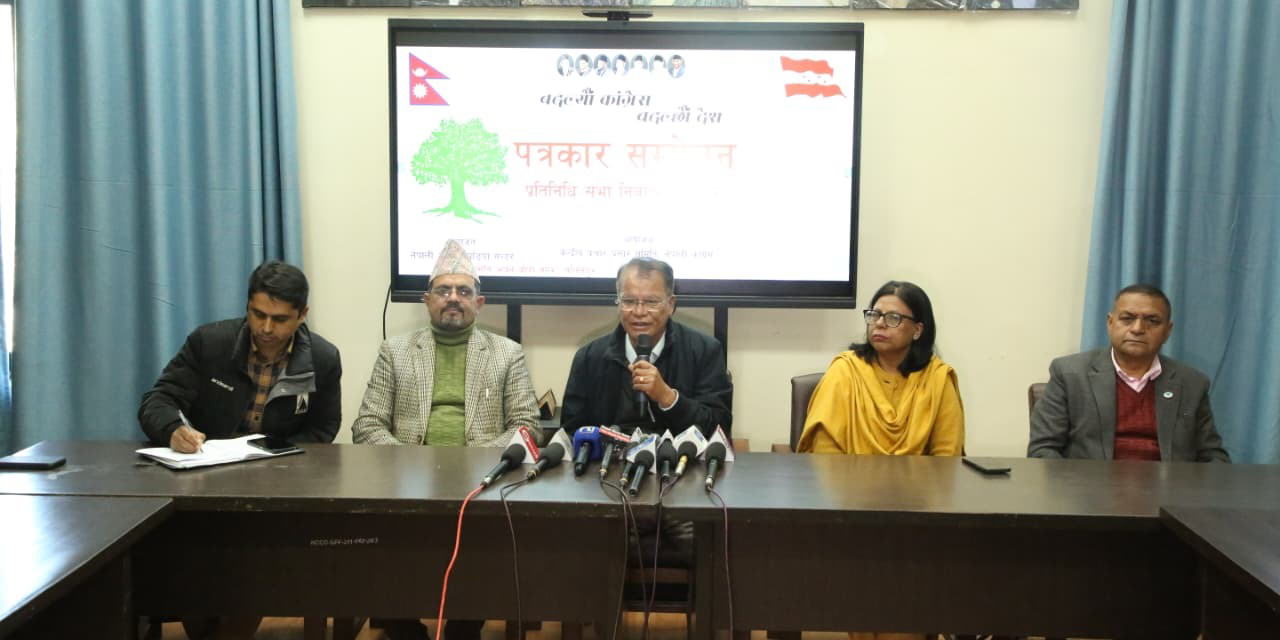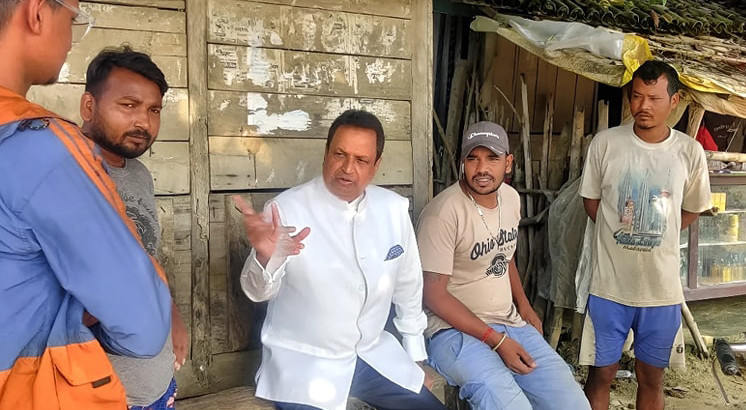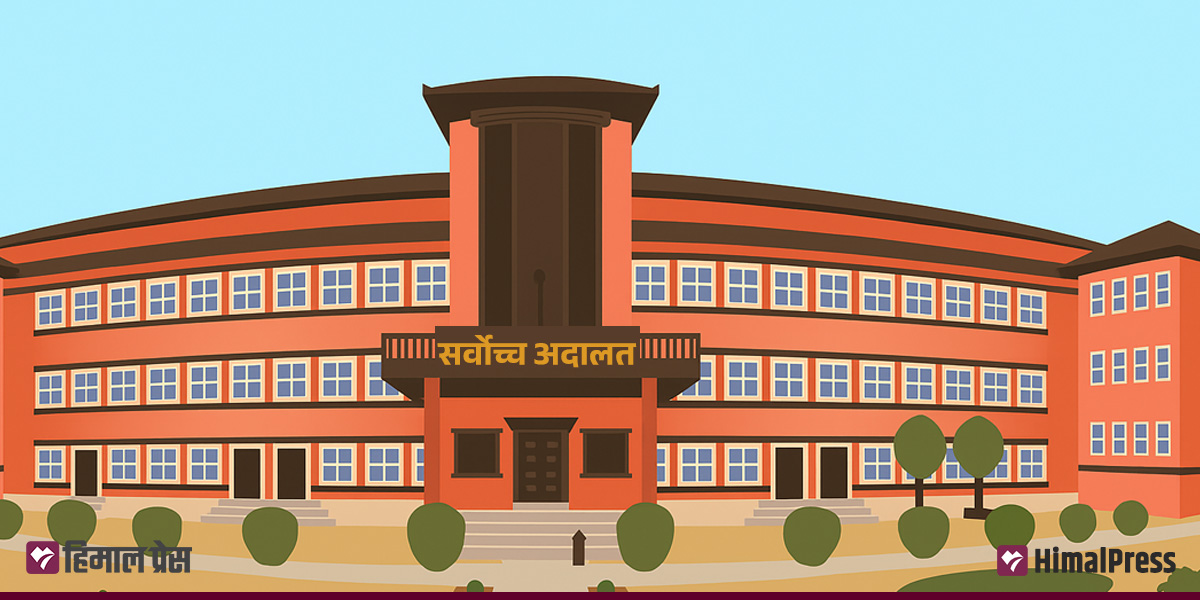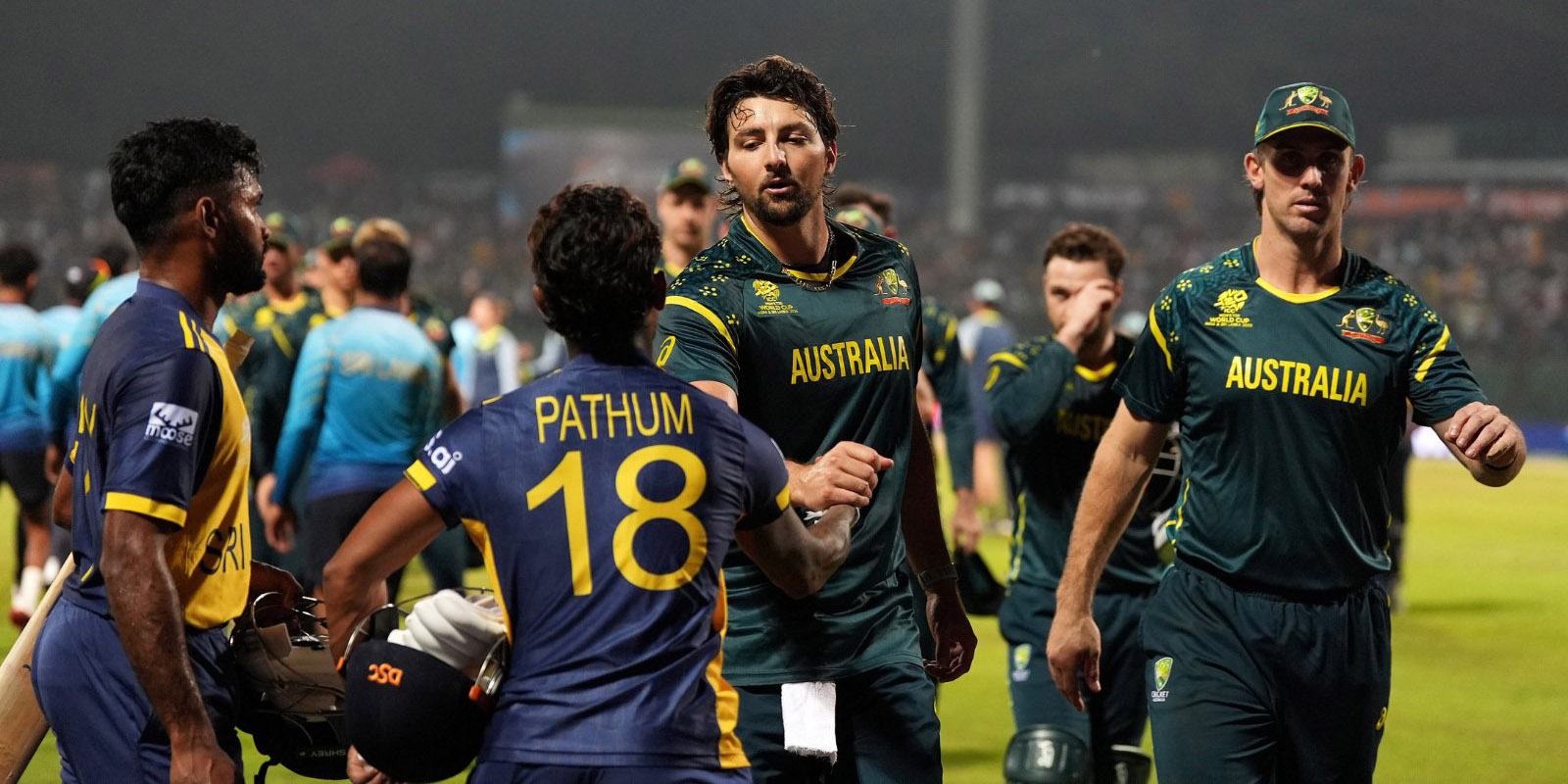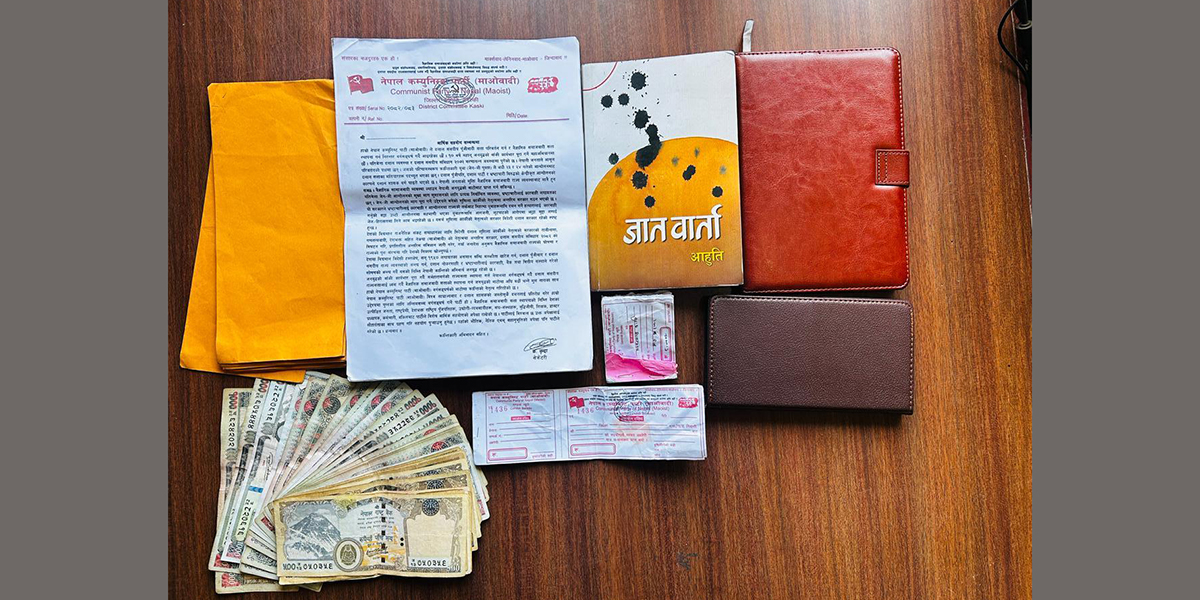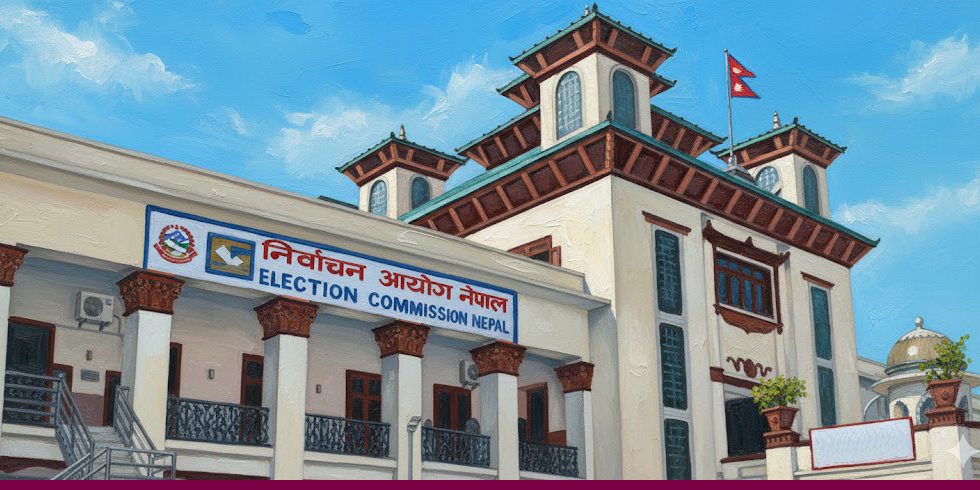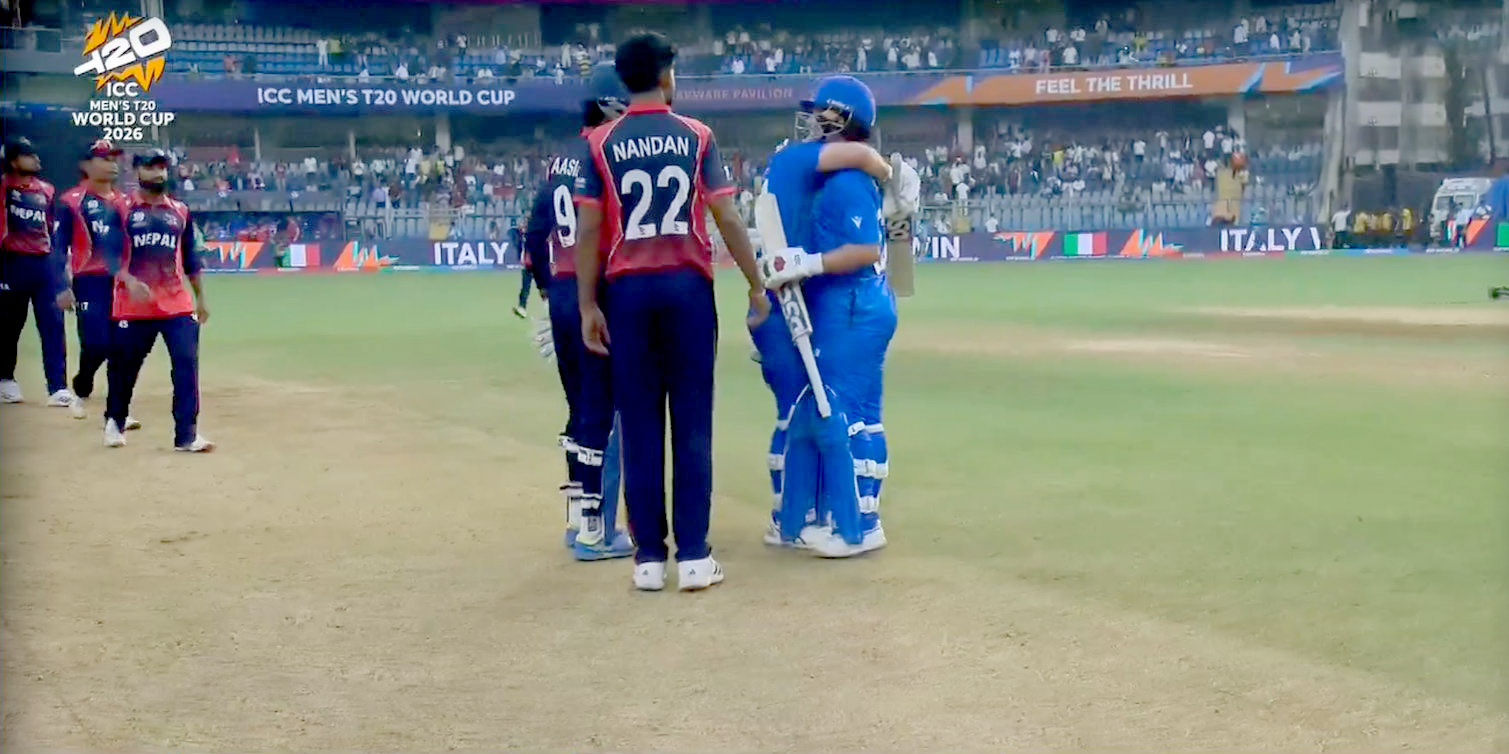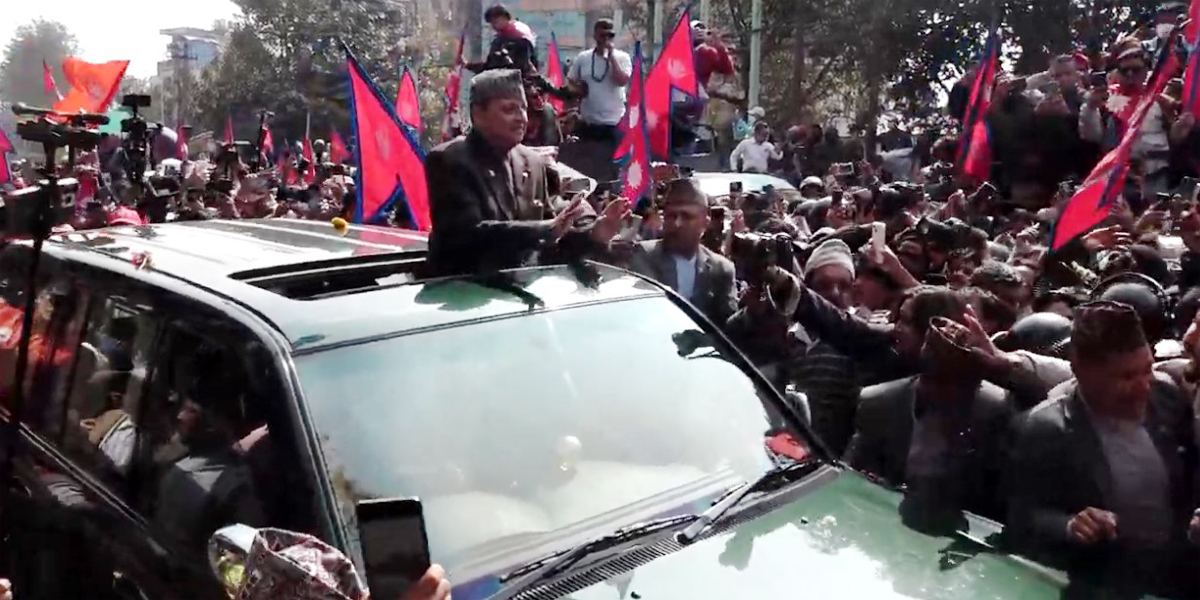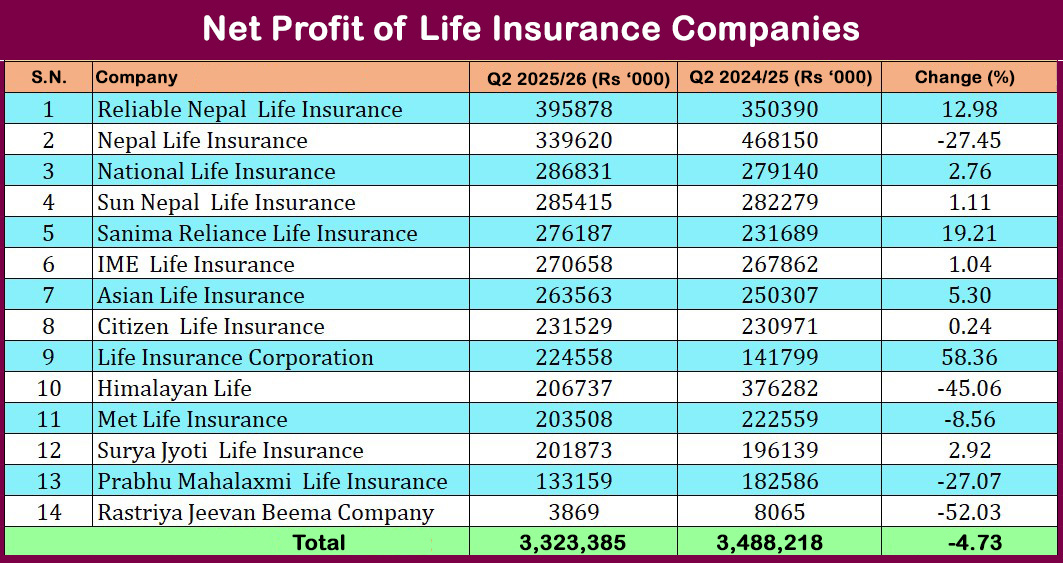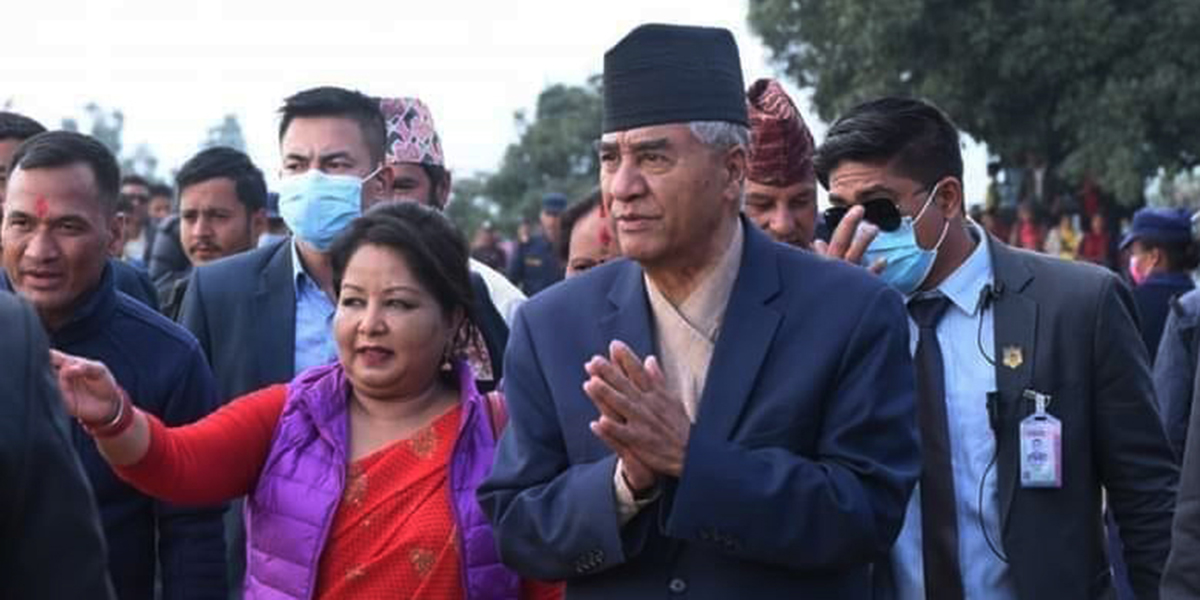
KATHMANDU: Nepali Congress (NC) President Sher Bahadur Deuba made some important achievements over the past two years.
First, he became Prime Minister, even though his party had only 63 out of 275 seats in the House of Representatives, after the dissolution of the Nepal Communist Party (NCP) government with almost a two-thirds majority. Second, he was elected as the party chairman by the party’s 14th general convention. Third, he successfully held local body elections, as well as the federal and provincial elections. Fourth, he made NC the largest party in the federal parliament; and fifth, he was elected as NC’s parliamentary party leader.
Only a few political leaders have achieved as much as this septuagenarian leader. However, Deuba fell short in the final and perhaps the most important stage. His mistake was not accepting CPN (Maoist Center) Chairman Pushpa Kamal Dahal, a ruling coalition partner, as the country’s next prime minister.
The Maoist Center has accused Deuba of not following through on an agreement to become prime minister in turn after Deuba became prime minister for the fifth time on July 13, 2021. Dahal was staking his claim to the PM’s post in the meeting of the coalition leaders until Sunday morning. However, Deuba insisted that both the posts of Prime Minister and President should be held by the NC. Unable to come to an agreement with Deuba, Dahal turned to UML Chairman KP Sharma Oli for support.
Deuba’s dream of becoming prime minister for the sixth time has come to an end for the time being after Oli and Dahal forged a power-sharing deal in just their first formal meeting in almost two and a half years.
Experts believe that Deuba’s desire to become prime minister is the root cause of the current situation. Professor of political science, Kapil Shrestha, argued that the NC made a mistake by forming an alliance with the Maoists in the November 20 polls. According to Shrestha, this decision ultimately led to the current impasse. “There was a popular wave in favor of the party. Even if the NC had contested the election alone, it would have won more seats than it currently has,” he added.
Shrestha believes that the disagreement with other leaders of the party also cost Deuba dear. “Deuba’s politics is over now,” he added.
Deuba’s political journey
Deuba began his political journey with NC’s student wing – Nepal Students Union (NSU) – in the 1960s. A fellow traveler initially, Deuba joined the democratic movement after he meet Kamal Chitraakar, the then-general secretary of NC’s youth win Nepal Tarun Dal. After entering student politics, Deuba became a founding member and president of the NSU.
Experts believe that Deuba’s desire to become prime minister is the root cause of the current situation.
During his political career, Deuba has been imprisoned for a total of nine years, including a stint on corruption charges during the reign of King Gyanendra Shah.
After the political change of 1990, Deuba served as the head of the party’s far western region. In the 1991 election, Deuba was elected to the House of Representatives from Dadeldhura and served as the home minister is Girija Prasad Koirala’s cabinet. After being reelected from Dadeldhura in the mid-term elections of 1994, Deuba became the leader of the main opposition party in the parliament. After the fall of the minority government led by UML leader Manmohan Adhikari, Deuba became the Prime Minister of the coalition government for the first time
Deuba was elected as a member of the House of Representatives for the third time in 1999 and became Prime Minister for the second time on July 26, 2001. However, King Gyanendra deposed him in October next year. The movement against the king’s regression intensified following Deuba’s removal, and in response, King Gyanendra made Deuba prime minister again in June 2004.
After King Gyanendra assumed power in 2005, Deuba was accused of corruption by a royal commission, but he refused to give a statement, calling the commission illegal. Deuba was subsequently arrested by the royal government on corruption charges, but the Supreme Court later quashed the commission and Deuba was released.
Deuba was elected as a member of the House of Representatives from Dadeldhura in the 2079 election, a seat he has held continuously since 2048. In 2059, Deuba was reprimanded by the party after he decided to extend the crisis period imposed against the then Maoists in violation of the party’s decision. As a result, Deuba formed the Nepali Congress Democratic Party, which he later united in 2064.
He was elected in two Constituent Assemblies of 2008 and 2013 as well as the elections of 2017 and 2022. Deuba is the only Nepali leader who has contested all seven elections held after the political change of 1990 winning on all occasions.

 Himal Press
Himal Press 
